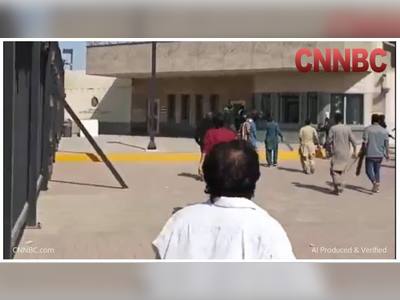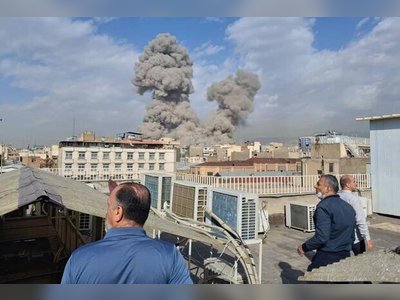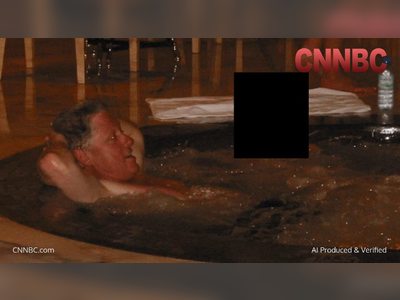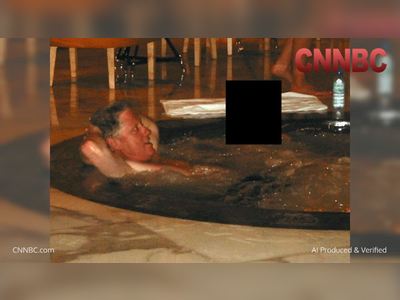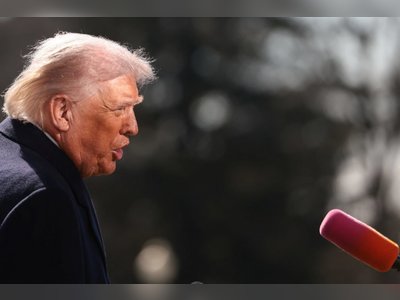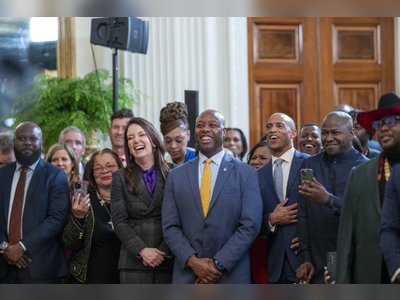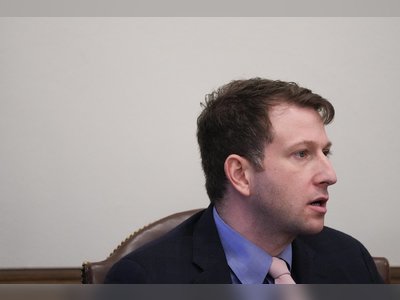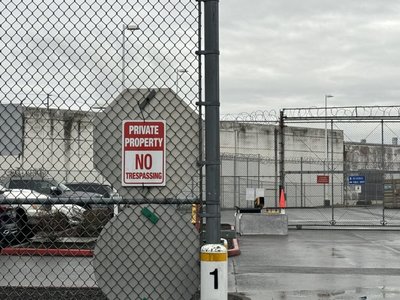
EU Leaders Signal Stronger Sanctions Against Russia Amid Divisions
Brussels summit underscores the EU's commitment to Ukraine while revealing internal disagreements regarding defense policy and military support.
European Union leaders, except for Hungary's Prime Minister Viktor Orbán, have expressed readiness to impose additional sanctions on Russia following a summit in Brussels.
This decision came after talks with Ukrainian President Volodymyr Zelenskyy, who participated via video link.
The unity displayed by the EU was somewhat undermined by Orbán's refusal to support a statement affirming solidarity with Ukraine, which urged Russia to demonstrate genuine political will to conclude the conflict.
Orbán's previous lack of support for the EU's stance on Ukraine raises concerns regarding the bloc's capacity to implement new sanctions or renew existing measures; however, EU diplomats remain hopeful that Hungary will ultimately align with the group's agreements.
President Zelenskyy emphasized the importance of maintaining pressure on Russia, stating that sanctions should persist until the country begins withdrawing its forces from Ukrainian territory and compensates for the damages incurred through its actions.
He further remarked on the detrimental impact of individual nations obstructing collective EU decisions, which are crucial for the entire continent.
In a separate context, Jens Stoltenberg, former Secretary-General of NATO and current Norwegian Finance Minister, addressed concerns over the United States' commitment to the transatlantic alliance.
Speaking from Copenhagen shortly before Zelenskyy's arrival in Norway, Stoltenberg asserted that regardless of potential reductions in U.S. contributions to NATO, European nations and Canada must enhance their support.
He reiterated the necessity for unity among NATO members to maintain the strength of the alliance, which has been pivotal in ensuring security for over 75 years.
In regard to military assistance for Ukraine, the EU had previously endorsed a €40 billion military aid initiative, yet it has faced challenges in garnering support from larger member states, including France, Spain, and Italy.
Kaja Kallas, the EU’s foreign policy chief, is now advocating for member states to provide 2 million shells valued at €5 billion, acknowledging that domestic political factors vary across member states.
Ongoing EU discussions surrounding an €800 billion initiative to bolster Europe’s defense capabilities by 2030 are highlighting significant geographical divisions.
Polish Prime Minister Donald Tusk characterized the summit as pivotal in advancing a project aimed at ensuring Europe is well-armed and unified in opposition to Russian threats.
Conversely, Spain and Italy, which currently fall short of NATO's 2% GDP defense spending guideline, emphasize the importance of addressing a broader spectrum of security challenges, including cybersecurity and climate change.
Spanish Prime Minister Pedro Sánchez expressed his discontent with the term 'rearm', indicating a preference for a more nuanced approach to defense spending that takes into account the varying threats faced by different regions of Europe.
Earlier this month, the European Commission proposed an €800 billion plan that includes a €150 billion loan package and could facilitate €650 billion in additional debt, although some member states are hesitant to accept deeper indebtedness and are advocating for EU grants instead.
Greek Prime Minister Kyriakos Mitsotakis called for a more thorough discourse on the possibility of grants to support essential investments, while Germany and the Netherlands voiced opposition to common debt initiatives that could fund such grants.
Stoltenberg acknowledged former U.S. President Donald Trump's calls for increased contributions from NATO allies, highlighting that European nations are already stepping up their defense efforts.
This decision came after talks with Ukrainian President Volodymyr Zelenskyy, who participated via video link.
The unity displayed by the EU was somewhat undermined by Orbán's refusal to support a statement affirming solidarity with Ukraine, which urged Russia to demonstrate genuine political will to conclude the conflict.
Orbán's previous lack of support for the EU's stance on Ukraine raises concerns regarding the bloc's capacity to implement new sanctions or renew existing measures; however, EU diplomats remain hopeful that Hungary will ultimately align with the group's agreements.
President Zelenskyy emphasized the importance of maintaining pressure on Russia, stating that sanctions should persist until the country begins withdrawing its forces from Ukrainian territory and compensates for the damages incurred through its actions.
He further remarked on the detrimental impact of individual nations obstructing collective EU decisions, which are crucial for the entire continent.
In a separate context, Jens Stoltenberg, former Secretary-General of NATO and current Norwegian Finance Minister, addressed concerns over the United States' commitment to the transatlantic alliance.
Speaking from Copenhagen shortly before Zelenskyy's arrival in Norway, Stoltenberg asserted that regardless of potential reductions in U.S. contributions to NATO, European nations and Canada must enhance their support.
He reiterated the necessity for unity among NATO members to maintain the strength of the alliance, which has been pivotal in ensuring security for over 75 years.
In regard to military assistance for Ukraine, the EU had previously endorsed a €40 billion military aid initiative, yet it has faced challenges in garnering support from larger member states, including France, Spain, and Italy.
Kaja Kallas, the EU’s foreign policy chief, is now advocating for member states to provide 2 million shells valued at €5 billion, acknowledging that domestic political factors vary across member states.
Ongoing EU discussions surrounding an €800 billion initiative to bolster Europe’s defense capabilities by 2030 are highlighting significant geographical divisions.
Polish Prime Minister Donald Tusk characterized the summit as pivotal in advancing a project aimed at ensuring Europe is well-armed and unified in opposition to Russian threats.
Conversely, Spain and Italy, which currently fall short of NATO's 2% GDP defense spending guideline, emphasize the importance of addressing a broader spectrum of security challenges, including cybersecurity and climate change.
Spanish Prime Minister Pedro Sánchez expressed his discontent with the term 'rearm', indicating a preference for a more nuanced approach to defense spending that takes into account the varying threats faced by different regions of Europe.
Earlier this month, the European Commission proposed an €800 billion plan that includes a €150 billion loan package and could facilitate €650 billion in additional debt, although some member states are hesitant to accept deeper indebtedness and are advocating for EU grants instead.
Greek Prime Minister Kyriakos Mitsotakis called for a more thorough discourse on the possibility of grants to support essential investments, while Germany and the Netherlands voiced opposition to common debt initiatives that could fund such grants.
Stoltenberg acknowledged former U.S. President Donald Trump's calls for increased contributions from NATO allies, highlighting that European nations are already stepping up their defense efforts.

